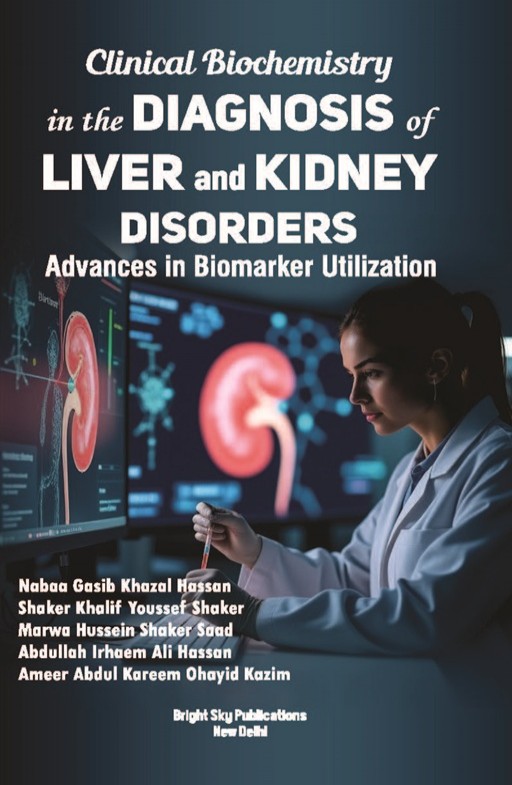
Clinical Biochemistry in the Diagnosis of Liver and Kidney Disorders: Advances in Biomarker Utilization
₹ 476.00| Editors | : | Nabaa Gasib Khazal Hassan, Shaker Khalif Youssef Shaker, Marwa Hussein Shaker Saad, Abdullah Irhaem Ali Hassan and Ameer Abdul Kareem Ohayid Kazim |
|---|---|---|
| Ebook ISBN | : | 978-93-6233-709-2 |
| Paperback ISBN | : | 978-93-6233-214-1 |
| Publisher | : | Bright Sky Publications |
| Language | : | English |
| Pages | : | 92 |
| Publication Date | : | 24/10/2025 |
| Publication Year | : | 2025 |
| Binding | : | eBook |
| Download PDF | : | Click here to download PDF of complete book |
| DOI | : | https://doi.org/10.62906/bs.book.459 |
In Stock
This Book is Indexed in:


Description
This book, "Clinical Biochemistry in the Diagnosis of Liver and Kidney Disorders: Advances in Biomarker Utilization," provides a comprehensive review of the essential role biomarkers play in the effective diagnosis and clinical management of both hepatic and renal diseases. The text affirms that conventional clinical biochemistry tests are fundamental for detecting damage and interpreting the significance of newer candidates. For the liver, the volume details the roles of traditional markers, such as ALP and GGT for biliary function, AST and ALT for hepatocyte injury, and albumin, bilirubin, and INR for synthetic capacity. A significant portion of the work is dedicated to novel liver biomarkers that aim to boost diagnostic accuracy for fibrosis, steatosis, and hepatocellular carcinoma, introducing non-invasive tools like scoring systems and ELISA panels. In the context of kidney disorders, the book emphasizes the core importance of creatinine levels and the eGFR in assessing and stratifying risk for Acute Kidney Injury (AKI) and Chronic Kidney Disease (CKD). It explores additional markers for tubular damage, as well as the use of conventional measures like urinary protein excretion for diagnosing specific nephron pathologies, such as diabetic nephropathy. Ultimately, the book highlights how these emerging biomarkers enhance the stratification of glomerular involvement, predict tubular repair, and differentiate between acute and prerenal azotemia, leading to more informed and personalized clinical decision-making.